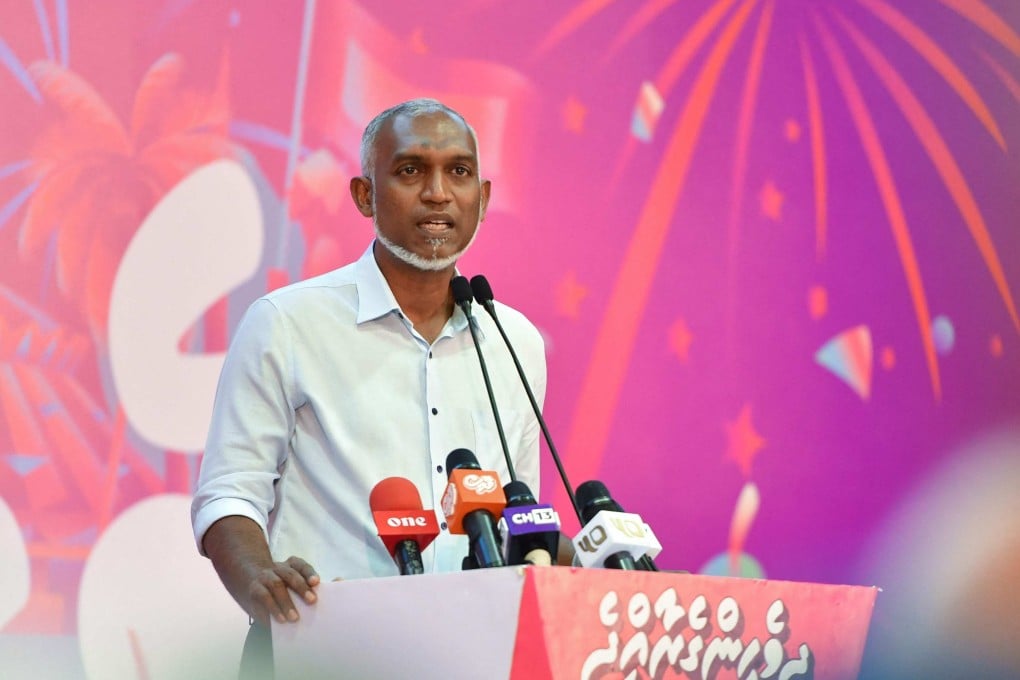Advertisement
Opinion | ‘India out’, ‘China in’ under new Maldives president? Not so fast
- The pro-China faction is back in power after the Maldives presidential election but it won’t be a simple swing to an anti-India foreign policy
- The picture is nuanced, not least because Chinese projects have left the Maldives debt-laden and India is still its main security partner
Reading Time:3 minutes
Why you can trust SCMP
7

After a fiercely contested presidential race in the Maldives, Mohamed Muizzu emerged victorious on September 30. While many painted the election as an India vs China referendum, I argue that the triumph of Muizzu, whose party has pushed an “India out” strategy for years, does not mean a “China in” administration.
There will be a subtle tilt to China but domestic factors will steer the administration towards a balanced foreign policy.
The Maldives has seen much political upheaval in the past year. Abdulla Yameen, leader of the Progressive Party of Maldives (PPM) and president from 2013-2018, was convicted of money-laundering and corruption last December. This disqualified the leading opposition candidate from the presidential race.
Yameen’s PPM is part of the Progressive Alliance coalition, which includes the People’s National Congress. After heated debates in the coalition, it decided to field Muizzu as the presidential candidate, with reluctant support from Yameen.
It was far from smooth sailing, either, for the incumbent Maldivian Democratic Party (MDP). There was a bitter contest as outgoing president Ibrahim Mohamed Solih fought his one-time mentor and party chief Mohamed Nasheed for the party candidacy. Solih won but Nasheed – who was speaker of parliament and a former president himself – left with his supporters to form a new party to contest the election.
This proved costly, as it divided the voter base for the ruling party and gave Muizzu the edge in the first round of polling. In the run-off election between the two, Muizzu secured the win by pocketing 54 per cent of the vote. Muizzu’s campaign focused on two broad themes: clean governance and the claim that the pro-India leanings of Solih’s government had eroded the Maldives’ sovereignty.
Advertisement
